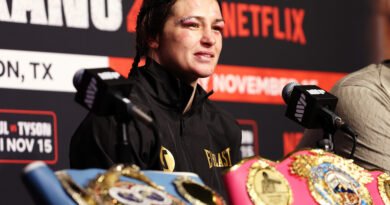How family relationships and dynamics impact gambling addiction and recovery
Meta description: Family systems theory examines how family members interact with and enable addictive behaviours. This applies to gambling addiction and recovery.
Influence of Family Systems on Gambling Behaviour
The ways in which family members relate to one another play a significant role in shaping behavior, including potentially addictive behaviors like gambling. Family systems theory provides a framework for understanding how family dynamics can perpetuate or disrupt cycles of addiction.
Enmeshed and Disengaged Families Enable Addiction
Families that exhibit extremes of closeness or distance in relationships often enable addictive disorders. Enmeshed family systems are intensely close, with members overinvolved in one another’s lives. Disengaged families show emotional distance between members. Both family styles struggle with appropriate boundaries.
When a family member develops a gambling problem, other members may shield them from consequences or fail to set limits. This protects the gambling at MrGreen Casino from facing outcomes that may motivate change. Alternatively, the family may ignore early warning signs of addiction, allowing it to spiral out of control.
Common Family Dynamics in Gambling Addiction
Several unhealthy family patterns emerge frequently in the context of gambling disorder:
- Codependency – Family members compulsively care for the gambling addict, rescuing them from crises. This alleviates pressure to stop gambling.
- Parentification – A spouse or child in the family takes on caretaking roles due to the emotional absence of the gambling addict.
- Enabling – Family members provide money to pay gambling debts or cover living expenses when funds are lost.
- Sabotage – Resentment over the gambling addict’s behavior leads family members to undermine recovery efforts.
- Scapegoating – Family members blame the gambling addict for broader dysfunction in the family system.
| Family Pattern | Description | Impact |
| Codependency | Compulsive caretaking and rescue from crises | Alleviates pressure to change |
| Parentification | Child or spouse takes on caretaking roles | Distorts family roles |
| Enabling | Providing money to cover gambling losses | Allows addictive behavior to continue |
| Sabotage | Undermining recovery efforts | Derails progress toward health |
| Scapegoating | Blaming gambling addict for family dysfunction | Deflects responsibility from other issues |
Influence of Family Roles
Along with overall family dynamics, the specific roles family members adopt relative to the gambling addict play a part in either worsening addiction or facilitating recovery.
- Family Hero – This person achieves success in work, academics, sports or community service. The pressure to uphold an image of excellence increases risk of addiction.
- Family Scapegoat – Viewed as a problem child or black sheep, this person acts out via addiction or other troubling behaviors. Their social isolation perpetuates addiction.
- Family Lost Child – Often remaining unseen in the backdrop of a dysfunctional family, this figure quietly struggles with emotions that may prompt secretive gambling.
- Family Mascot – This family member uses humor as a means of deflecting attention from underlying family issues. Their gambling masks inner turmoil.
- When families heal dysfunctional dynamics and role divisions, it allows the gambling addict to address core issues driving their behavior without systemic enabling or sabotage.
Gender Differences in Family Impact
Just as family roles differ along gender lines, so too does the interplay between family relationships and gambling addiction.
For women struggling with gambling disorder, research flags a higher likelihood of past trauma or mental health issues in childhood. This informs their family and peer attachments. Additionally, financial motives feature more prominently in driving female gambling behavior.
Among male gambling addicts, competitive drives and sensation-seeking tendencies strengthen through family interactions. Men also exhibit higher rates of antisocial behavior related to gambling addiction. However they display less likelihood of financial motives than women.
In both genders, the family unit represents the most central system impacting development of gambling disorder. The responses and interventions leveraged by families can disrupt the addiction process at critical junctures.
Family Systems Therapy for Gambling Addiction
To address the family patterns enabling addictive gambling behavior, specialized family therapy models have emerged. They draw on the principles of family systems theory to transform dysfunctional relational dynamics.
- Structural family therapy focuses on adjusting boundaries and hierarchies in the family structure that allow addiction to thrive. It maps out flexible roles for family members to support sober behavior.
- Strategic family therapy identifies the unconscious motives and payoffs behind maladaptive gambling habits and family interactions. Then, it strengthens family capacities for adaptive change.
- Experiential family therapy uses active experiments to shift habitual family dynamics instantly. Family role-playing, scripted dialogues and non-verbal exercises generate insight.
No matter the specific type, family systems therapy empowers families to erect loving barriers against addiction. It offers a path to severe generations-long cycles of gambling disorders taking root in family environments.
Bottom Line
Families shape an individual’s vulnerability to gambling addiction in childhood and fuel its persistence in adulthood via maladaptive dynamics. Codependency, enabling and other unhealthy patterns provide cover for gambling disorder to entrench itself.
Through family systems therapy, families gain tools to dismantle ingrained interaction styles that perpetuate addiction. They build relational habits of honesty, accountability, limit setting and empathy that aid recovery. This liberates gambling addicts and their loved ones from the bonds of addiction.



